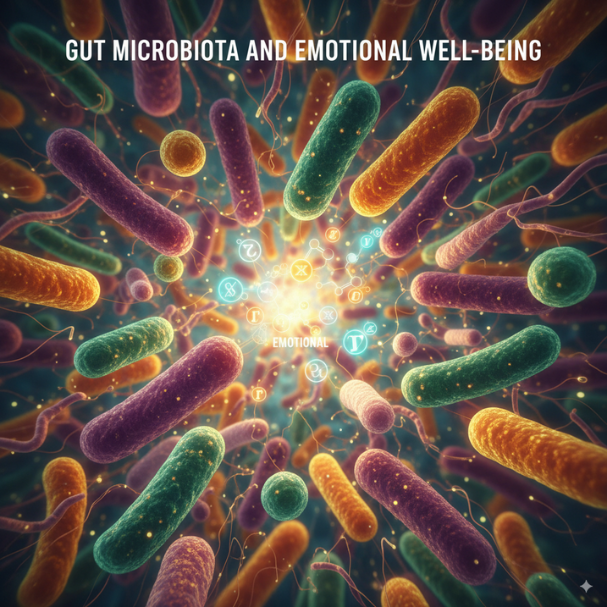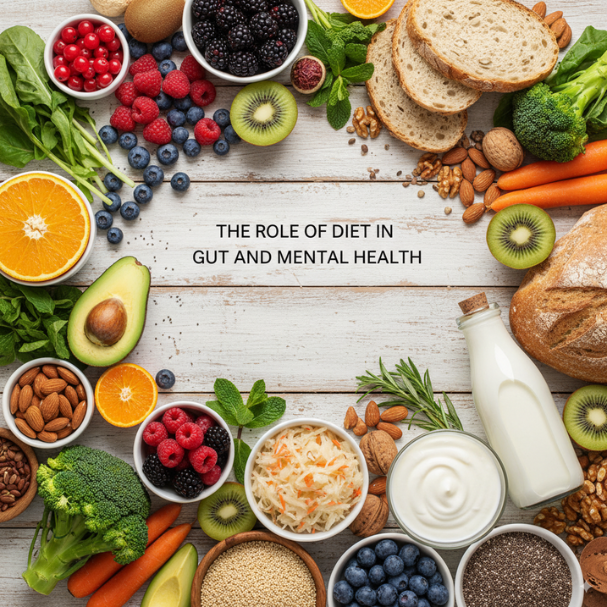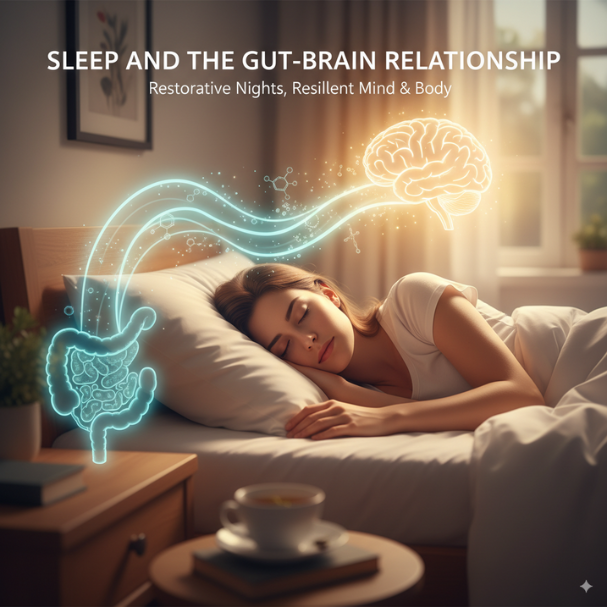The connection between mental health and gut health has become one of the most fascinating areas of research in recent years. Scientists, nutritionists, and psychologists alike are uncovering how deeply intertwined our digestive system is with our emotional and cognitive well-being. For centuries, people have casually referred to having “gut feelings” or experiencing “butterflies in the stomach,” and now modern science is showing us that these expressions are not just metaphorical but have a physiological basis. The gut, often called the “second brain,” communicates with the central nervous system and has a profound influence on how we think, feel, and even behave.
The Gut-Brain Axis: How the Two Systems Communicate
The gut-brain axis is the term used to describe the two-way communication system between the gastrointestinal tract and the brain. This network is powered by the vagus nerve, the enteric nervous system, and an extensive number of biochemical messengers. Essentially, your gut and brain are in constant conversation, influencing each other in real time. When the gut is healthy, this communication tends to be balanced, supporting good mood and cognitive function. However, when the gut microbiome is disrupted, it can trigger a cascade of changes that may affect mental health.

The gut contains trillions of microorganisms, collectively known as the gut microbiota. These microbes help break down food, produce vitamins, and play a role in regulating the immune system. Importantly, they also produce neurotransmitters such as serotonin and dopamine, which are directly tied to mood regulation. It is estimated that around 90% of serotonin, the “feel-good” neurotransmitter, is produced in the gut. This shows how critical gut health is for maintaining emotional balance and overall mental well-being.
Gut Microbiota and Emotional Well-Being
The composition of gut bacteria can have a direct impact on how we feel emotionally. A diverse and balanced gut microbiome supports healthy communication with the brain, leading to greater stability in mood and thought processes. On the other hand, an imbalanced gut microbiota, often referred to as dysbiosis, may be linked to feelings of stress, irritability, or low mood. Emerging studies suggest that individuals with poor gut diversity may experience more fluctuations in mental health.
One explanation is that certain gut bacteria produce short-chain fatty acids and other metabolites that play an anti-inflammatory role in the body. Chronic inflammation is known to affect brain function, and reducing it through a healthy gut may create more favorable conditions for mental clarity and emotional resilience. The gut microbiome also influences the body’s stress response system, the hypothalamic-pituitary-adrenal (HPA) axis, which regulates cortisol levels. A balanced microbiome can help the body respond to stress more effectively, while imbalances can amplify feelings of anxiety.
The Role of Diet in Gut and Mental Health
Diet is one of the most important factors shaping the gut microbiome, and it indirectly shapes mental health as well. A diet rich in whole foods, fruits, vegetables, legumes, nuts, seeds, and fermented foods promotes a thriving microbiome. These foods provide fiber and prebiotics, which serve as fuel for beneficial gut bacteria. When these bacteria flourish, they produce metabolites that support brain health and emotional balance.

On the other hand, a diet high in processed foods, refined sugars, and low in fiber can disrupt the gut microbiome and trigger inflammation. Such disruptions may weaken the communication between the gut and brain, potentially contributing to mood fluctuations or low energy levels. Many people who adopt a more nutrient-dense diet often report improvements in both digestive comfort and overall mood, highlighting the importance of nourishment for both the body and mind.
Stress, Digestion, and the Gut
Stress is another crucial link in the mental health and gut health connection. When we are stressed, the body activates its “fight or flight” response, which diverts blood flow away from the digestive system to prepare for immediate action. Over time, chronic stress can impair digestion, alter gut motility, and change the composition of gut bacteria. This, in turn, can feedback into the brain, making stress more difficult to manage.

Interestingly, the gut often reacts quickly to emotional states. Many people experience stomach discomfort during anxious situations or a loss of appetite during emotionally heavy times. These are examples of the gut-brain connection in action. By learning to manage stress through practices like mindfulness, breathing exercises, or gentle physical activity, it is possible to support both gut and mental health simultaneously.
Sleep and the Gut-Brain Relationship

Sleep plays a significant role in regulating the gut-brain axis. Poor sleep quality can alter the microbiome, and disruptions in gut health can interfere with restful sleep. This cyclical relationship means that taking care of one often benefits the other. For instance, individuals who practice good sleep hygiene often report both improved digestion and greater emotional balance. Similarly, focusing on gut-friendly habits can lead to more restorative sleep cycles.
The Impact of Lifestyle Choices
Beyond diet and sleep, other lifestyle choices also influence the gut-brain connection. Regular physical activity has been shown to increase gut microbiome diversity, which supports both physical and mental resilience. Exercise stimulates the production of endorphins, but it also helps regulate digestion and gut motility, further strengthening the connection between the gut and brain.
Social interactions and emotional connections also play a role. Feelings of loneliness or social isolation can influence gut microbiota composition, while positive social experiences can have a protective effect. This highlights that mental health and gut health are not only shaped by physical habits but also by emotional and social environments.
Why the Connection Matters
Understanding the connection between mental health and gut health has the potential to transform how we approach overall well-being. Instead of viewing mental health as solely a brain-centered issue, or gut health as only a digestive concern, it is becoming clear that both systems are deeply intertwined. Supporting gut health through balanced nutrition, mindful stress management, adequate sleep, and healthy lifestyle choices can create a ripple effect that enhances emotional resilience and cognitive function.
For people experiencing challenges in mental well-being, paying attention to digestive health could provide new insights into patterns or triggers. Similarly, those focusing on digestive issues may benefit from recognizing the role of stress and emotional states in how the gut functions.
Practical Steps for Supporting Gut and Mental Health
-
Eat a varied diet rich in fiber, whole grains, fruits, and vegetables to nourish beneficial gut bacteria.
-
Incorporate fermented foods like yogurt, kefir, kimchi, or sauerkraut to introduce beneficial microbes.
-
Stay hydrated, as water is essential for healthy digestion and circulation of nutrients.
-
Practice stress management techniques such as meditation, yoga, or deep breathing to calm the gut-brain axis.
-
Prioritize sleep and establish consistent bedtime routines for better regulation of both mood and digestion.
-
Move regularly with activities that bring joy, whether walking, cycling, or dancing, to support gut and brain function.
-
Foster social connections, since healthy relationships can positively impact both emotional well-being and gut health.
The Future of Gut-Brain Research
While much has already been discovered about the gut-brain connection, the field is still developing. Researchers continue to explore how specific strains of bacteria influence emotions, how early life gut development shapes mental health later in life, and how environmental factors contribute to the delicate balance of this relationship. What is already clear is that our mental health and gut health are inseparable, and supporting one means supporting the other.
Conclusion
The link between mental health and gut health offers an empowering perspective on well-being. The gut is not just a passive organ for digestion but a dynamic system that communicates directly with the brain. By taking care of gut health through mindful lifestyle choices, a balanced diet, stress management, and good sleep, individuals can enhance not only their digestive comfort but also their emotional resilience and cognitive performance. The mind and gut are partners in health, and nurturing this partnership is key to living a balanced, fulfilling life. At Ciranox, we provide personalized guidance and support to help you strengthen this vital connection. All you need to do is fill simple sign-up form or join our program to start your journey with us—taking the first step toward better gut health, improved mental well-being, and a healthier, happier life.




